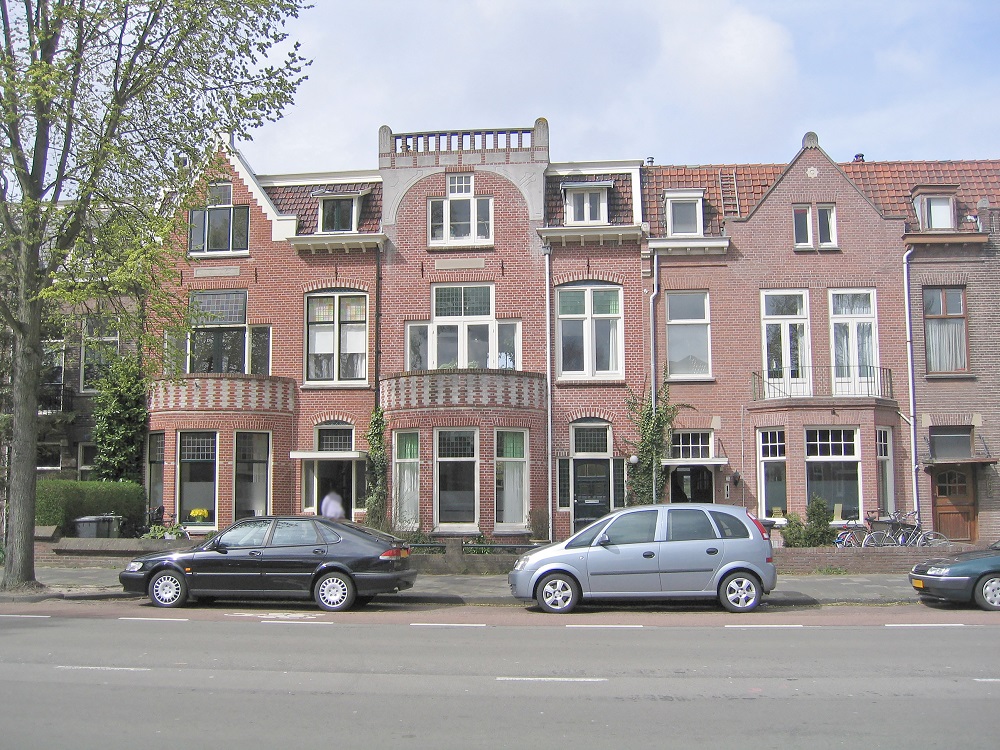Marriage is about two people deciding to share their lives with one another. But, what about their property? It is very important to understand which ‘matrimonial property laws’ apply to your marriage specifically, as an expat living in the Netherlands. This knowledge will be essential if, for some reason, your partnership comes to an end. It is also crucial to understand it incase you, or your partner, goes into debt or inherits money whilst you are married. Essentially, you need to know what belongs to whom! This article will help you to gage which type of law applies to you, and how you can avoid legal complications over your property.
THE HMPT, 1978
If you and your spouse are of different nationalities, and you live in the Netherlands together, you are considered to be in an ‘International marriage’. Every country has its own, specific form of ‘International private law’. This used to dictate which matrimonial property rules would apply to spouses in international marriages, in said country. However, under this system, matters grew complicated when multinational couples moved abroad. Therefore, the Hague Matrimonial Property Treaty was created. Here are some facts about it:
- The Hague Matrimonial Property Treaty, or the ‘HMPT’ came into effect in 1978
- Three countries entered into the treaty: the Netherlands, France and Luxembourg, in 1978
- The HMPT applies to international marriages that were entered into on, or after, September 1, 1992
Freedom to Choose a Law
- The key rule of the HMPT is that spouses themselves are free to determine which matrimonial property law applies them
- A couple can choose the law of a country in which one of them has nationality, or residence status
- Equally, a couple can choose the law of the country in which they will reside once they are married
- The advantage of making this decision is that it clarifies which national law applies to a couples’ matrimonial property
- If spouses do not actively make a choice, then the law of the country in which they first settled together as newlyweds applies to them
Why Pick Your Own Law?
So what’s all the fuss about? Why is it so important to make a decision about which matrimonial property law you would like to live under?
If some form of property dispute does arise between a couple who have not made the decision, they can find themselves in confusing situation. This is due to several factors:
- There are exceptions to the rules of the HMPT
- The law of the country that a couple first settled in could state that international couples, who married in their country, are subject to different rules
- They might decide, for example, that the spouses should abide by the laws of the country with which they have the closest ties
- Furthermore, under the rules of the HMPT, a couples’ circumstances will change. The treaty dictates that whichever law applied to them when they first married, it will automatically change once they have lived in a single country for more than ten years time
How Can this Affect an International Marriage?
- This means that if you are an expatriate, living with your husband or wife in the Netherlands, and you were married on or after September 1, 1992, the rules will shift under you on your 10 year anniversary
- If you are not of Dutch Nationality, Dutch matrimonial property law will become applicable to your marriage, a decade after your wedding day
- If a couple does make a decision about which matrimonial property law they would like to apply to them, under the rules of the HMPT, they will not be subject to any new rules after the 10 year period
The Best Law for Your Marriage
There are some steps that it is strongly advisable for engaged expats, living in the Netherlands, to take when deciding on a matrimonial property law:
- Consult a specialized civil law notary
- Ask them for advice about which law and/or a prenuptial agreement would best suit your unique situation and your needs
- If you are already married, ask them to clarify which national law applies to your marriage
- Ask the notary whether they believe this law is suitable for you as a couple
- If they believe it is not, make a request to change it to a law that they recommend
 Side Note
Side Note
Marriages Prior to September 1st, 1992
- If you were married before September 1st, 1992, the rules of the HMPT do not apply to you
- You may, however, still be able to choose which laws apply to your marriage
- To learn more, read about the system that was in place before the HMPT came about: the 1905 Convention
Being married under Dutch law
If you, and your husband or wife, opt for your marriage to be subject to Dutch Law, here is what you need to do:
- Put your decision in writing. The written statement must be in keeping with the formalities of the individual country whose law you have chosen
- In the Netherlands, you must have a ‘notarial deed’ drafted on your behalf
- This can be done in combination with the ‘matrimonial property deed’, which must also be made up for you. A Dutch civil law notary must create both of these documents
- Once your deeds have been signed, the notarial deed needs to be registered in the public Matrimonial Property Registry of the District Court. This will make it binding for third parties
Moving Abroad
- Your choice will be respected by all countries that are part of the HMPT
- In countries that are not part of the treaty, you might have some trouble
- It is, therefore, strongly advisable for you to consult your civil law notary, before you move to a country that does not uphold the rules of the treaty
Dutch matrimonial property law
So, if you and your significant other reside in the Netherlands and have officially chosen to abide by Dutch Matrimonial Property Law, what does this mean for you in practice?
- Technically, you and your spouse are married ‘in general community property’
- This means that all your combined property belongs to both of you, equally
- Anything either of you owned before your marriage, including inheritances and gifts, becomes joint property once you are wed
- Debts incurred by either of you can be collected on your joint property
- If your marriage comes to an end, your property and debts must be divided up, 50/50
- If you and your spouse want to avoid this, you can enter into a prenuptial agreement
- The agreement must be drawn up by a civil law notary
- The notary will advise you on how your needs and wishes can best be met, in the event of a divorce
Being married under foreign law
What about expatriate couples who live in the Netherlands, and have not actively made a decision about which law they would like to apply to them?
- In this situation, a foreign national law will be applicable to their marriage
- If you and your husband or wife are in this situation, and you wish to keep it this way, there are some useful legal proceedings you can take
- These will simplify any queries over property that may arise
Precautionary Steps
We advise you to take the following steps, if you and your spouse do not wish to live under Dutch matrimonial property law:
- Register a deed or a statement, to clarify that Dutch law does not apply to your matrimonial property in NL
- You must have this statement drawn up by a Dutch civil law notary
- The notary must make sure that your statement is registered with the public Matrimonial Property Registry of the District Court
- If you fail to do this, you could run into some complications over your property. For example, a third party, such as a creditor, may assume that your marriage is subject to the Dutch legal system
 Useful links
Useful links
- Rechtshulp Advocaten: Legal Aid Lawyers
- De Notaristelefoon: The Notary Hotline
- Nederlands Mediation Instituut: Divorce mediation specialists

The Essential Guide to Using a Mort ...
Purchasing a home in the Netherlands can be an exciting milestone, especially for expats adapting ...

Understanding Mortgage Calculators ...
Buying a home in the Netherlands involves careful financial planning, especially for expats navigating the ...

Mortgage Interest Rates in 2025: Wh ...
As 2025 unfolds, expats navigating the Dutch housing market find themselves in a shifting financial ...

How to safely use public wifi netwo ...
Public Wi-Fi networks come with a significant risk to the security of your personal ...

Be prepared for the Dutch housing m ...
Buying a house in the Netherlands may work a bit differently to what you are ...

Making the most of your Dutch home
Whether you are renting, staying in a long-term AirBNB or have just bought a ...

Obtaining a Mortgage as an Expat in ...
Obtaining a mortgage as an expat in the Netherlands can be a complex process, as ...

Help me move to the Netherlands!
Obviously, the decision to move to the Netherlands is not one to be taken lightly ...

Five Renovation Tips to Increase yo ...
Learn how much home renovations cost – and which repairs increase the home value, and which ...

Financing Your New Home with ABN AM ...
When you move to the Netherlands, not only is there the need to find a ...